
Transporting Convicts from New Zealand to Van Diemen’s Land
By Dr Kristyn Harman Senior Lecturer in History, University of Tasmania Like many New Zealanders, I grew up hearing stories about the Australian penal colonies, particularly anecdotes of London pickpockets and similarly desperate, impoverished characters, and the harsh and sometimes unfair regimes of punishment and deprivation under which such convicts lived and laboured. These […]
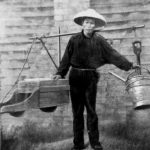
Chinese Prisoners on Cockatoo Island, Sydney
The small sandstone island of Cockatoo Island in Sydney Harbour is best known as a convict stockade which held the ‘worst’ of the convict system: former-Norfolk Islanders and bushrangers are its most famous inhabitants. However, from the 1850s onwards Cockatoo Island acted primarily as a local prison for those convicted in the colony of […]
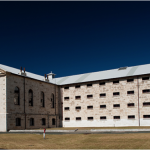
A System of Reintegration and Control: The Dual Functionality of Regional Convict Depots in Western Australia
By Kellie Moss Fremantle Prison, Western Australia (authors own image). The history of convict confinement in Western Australia has been dominated by one towering limestone structure: Fremantle prison. However, convicts were incredibly mobile as they built public works beyond the walls of the prison, and received nominal freedom as probationers and ticket-of-leave holders. […]
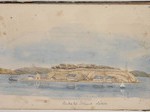
Indigenous Geographies of Carceral Islands
Aboriginal and Torres Strait Islander readers are advised that this post contains images of people who have died. At the Carceral Archipelago’s conference last month we discussed how landscapes around penal institutions could be rendered “empty” in our histories. This conception emerges from archival records in which land and sea are portrayed as “natural […]

The Carceral Archipelago Conference, Leicester 13-16 September 2015
The Carceral Archipelago conference, held in Leicester from 13 to 16 September 2015, felt just like reading over thirty outstanding monographs in two-and-a-half days, getting to know their authors personally, and having the chance to reflect collectively about their mutual entanglements. It was an intense marathon through the burgeoning field of the global history of […]
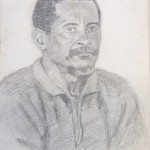
Convicts, Collecting and Knowledge Production in the Nineteenth Century
In previous blogs, I have explored some of the circulations and connections that linked nations, colonies and empires, and wove together practices of punishment and penal labour across polities and imperial spaces. This included the sharing of official reports, the spread and adaptation of particular modes of convict punishment, and the intra-colonial mobility of personnel […]
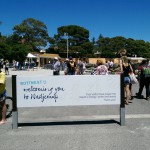
(In)visible Aboriginal Convict Heritage on Rottnest Island
In modern day Australia there are two key heritage ‘issues’ that are addressed in completely different ways – firstly, convict heritage; secondly, histories of aboriginal contact and conflict with European settlers. I will explore the tensions between the two narratives that emerge in the heritage of Rottnest Island, which held convicted Aboriginals between 1839 and […]
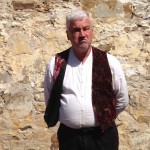
Playing Prometheus: some reflections from Australia
I have had the privilege to visit Australia for the past two months on a research trip thanks to the generous funding of the Menzies Centre for Australian Studies. I’m now a little halfway through my trip and have visited all but one convict sites where large numbers of ‘my’ convict subjects stayed or passed […]

A Promising Future: Convict Voyages to Western Australia by Kellie Moss
During a recent research trip to the State Library of Western Australia I had the opportunity to examine the journal compiled by William Smith, Surgeon Superintendent, on board the Merchantman’s second voyage to the Swan River Colony. [1] Leaving Portland on July 1st 1864, 257 convicted men were transported directly to Fremantle in a voyage […]
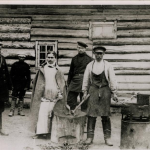
The Carceral Archipelago panel at the Fourth European Congress on World and Global History, 4-7 September, 2014
During the first week of September, members of our European Research Council funded project, Carceral Archipelago, attended the Fourth European Congress on World and Global History, held in Paris at the École Normale Supérieure. While at the Congress, a number of the project’s researchers had the exhilarating opportunity of presenting aspects of their research on a shared […]

Recent Comments